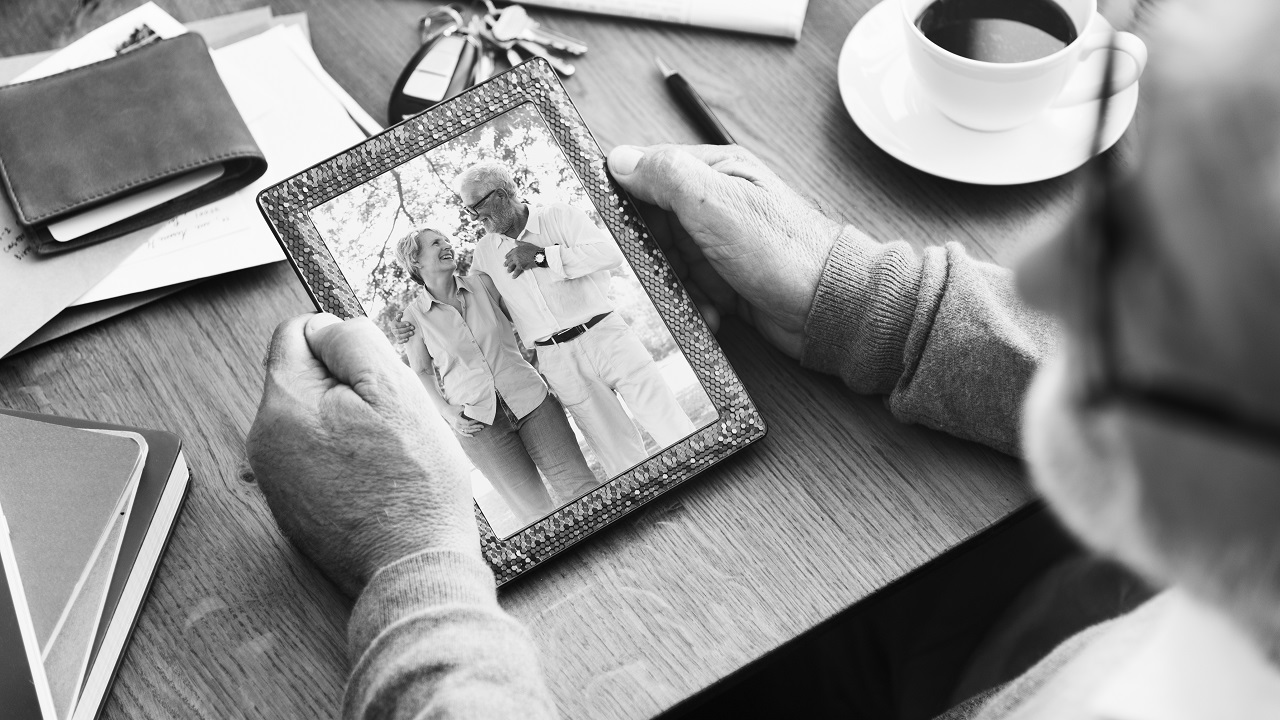When a care recipient dies, their family caregiver faces a period of adjustment as their role comes to an end. They grieve, of course, but they also adapt and carry on with the business of living. If the situation were reversed, however, and a family caregiver died before their care recipient, things are instantly much more complex—especially for those with dementia.
I could not go on if, God forbid, something were to happen to my wife and primary caregiver, Phyllis June. Imagine the grief one goes through upon a loved one's passing, and then try to imagine going through this as a dementia patient. To put it bluntly, you can't.
If something were to happen to you, your care recipient would have to immediately rely on someone else. Who would be able to take your place? How quickly could they be on site to assume your responsibilities? Would the person you have in mind even be willing and able to accept this role? For how long? We dementia patients and older adults who require high levels of care for other reasons rely heavily on our spouses, children, etc. to do so much for us. When a primary caregiver experiences a temporary medical setback of their own or dies, it is utterly devastating in multiple ways.
For instance, consider financial obligations. I haven't a clue who we owe, how much we owe, where we have accounts these days or how to access them. I don’t know when our water, cable or electricity bills are due. Even if I did, I would never remember to make these payments. I wouldn't have the foggiest idea of how to get things in order to file our taxes, balance our checkbook, ensure our insurance policies are current or manage our investments.
Many of you may think that managing your finances would be the last thing on your mind if you lost a spouse and primary caregiver, but the bills keep coming. The rest of the world does not stop. Everything still has to be paid correctly and on time. In most cases, this is an impossible task for a dementia patient, especially while grieving. This is unimaginable to me.
All caregivers should have back-up plans upon back-up plans to ensure their care recipients continue receiving care as seamlessly as possible should their normal routine be disrupted. Asking yourself some difficult questions can help you flesh out what these plans might look like. What would you do if you were unexpectedly hospitalized? What would happen to your loved one if you suffered a fatal heart attack or died suddenly in a car accident?
It may seem morbid, even far-fetched, but we need to think about things like this and create alternate care plans for these scenarios. One frequently cited study published in the Journal of the American Medical Association found that spousal caregivers who were experiencing caregiver strain had mortality risks that were 63 percent higher than non-caregivers. Dementia care is notoriously associated with high levels of emotional stress, which are detrimental to caregivers’ physical and mental health.
While my impairment isn’t yet severe, it certainly is a source of added stress for my wife and will only get worse in the coming years. She is in this high-risk group of caregivers, so we have talked at length about what the future may look like and made plans for as many contingencies as we can.
If I die, everything passes to Phyllis June, and vice versa if she should pass before me. Our daughter is next in line if something should happen to the two of us together. But, this concern extends far beyond estate planning. We have analyzed every aspect of our daily routines and taken steps to ensure as little disruption as possible to our daily lives in the event of an emergency.
Who will help the care recipient with activities of daily living (ADLs)? Where will they live? Do they have the funds to pay for in-home care or senior living? If the original agent passes away, does anyone else have power of attorney authorization to help manage the senior’s health care and finances? Is this person familiar with the senior’s finances, health status and long-term care goals? All these questions will arise before funeral arrangements are even finalized for the caregiver who just passed away. Therefore, all these matters must be addressed well in advance, especially for dementia patients who may not be able to participate in their own care or advocate for themselves.
Seniors and caregivers enjoy their privacy, so even bringing up delicate topics like this can be a huge issue. Many of our parents come from a proud and private generation, but this is not the time for secrecy. No one wants to think about these things, but they happen often. We have all heard stories of caregivers passing from health conditions like heart disease and cancer that are made worse by chronic stress.
A senior’s current care plan and any contingency plans for the future must be shared with trustworthy family members and made official using the proper legal tools. This will ensure the whole family is as prepared as possible for whatever may lie ahead. Should the worst happen, this will at least help to eliminate some unnecessary stress and uncertainty at an already very difficult time.
As uncomfortable as the conversation may be, it must be done. This is one of those things that you either do now or take care of later under unbelievable pressure. Take the time to at least bring it up. This could be the most important discussion you have with your family.
Editor’s Note: Phyllis June Phelps, Rick’s wife of 38 years and primary caregiver, passed away November 9, 2021. She was 64 years old.
